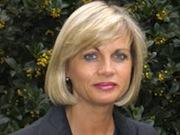How to Prepare Your Curriculum Vitae / Resume

In my last couple of articles I outlined the need to know 1) what kind of career will suit your skill set, your motivations and bring you job satisfaction in the long term and 2) how to research where you will find such jobs
Now I want to help you with stage 3 of the process – preparing your CV/Resume.
First let me start with the difference between a Curriculum Vitae or CV and a Resume.
The definition of a CV is ‘the course of one’s life’ – but that doesn’t mean that you tell it like a story – it should be two or three pages at most – depending on how extensive your work experience is. A resume is a shortened version of the CV in that it should be a one page summary of your work experience to date – so there isn’t much room to write more than a list of where, when and what you did. In the UK, and Europe we expect candidates to submit a CV, whereas in the USA they tend to prefer a resume. If you are applying abroad check what is required there.
Your CV needs to be targeted at the job you are applying for. As you don’t have a lot of space you need to be economical with words. I tend to recommend using bullet points and beginning each with an action word, e.g. Planned, Developed, Identified, Researched. But, before going much further you need to decide on whether you will write a (reverse) chronological or functional CV.
What’s the difference?
A reverse chronological CV highlights your present or the last role(s) you have had in reverse date order. You should show the dates, where you worked, location, and job title. If the company is unlikely to be known by the reader write a few words to describe the parameters of the company i.e. the type of company, number of outlets or number of employees. If you have not worked for some time, have never worked, or have recently graduated, you may want to consider writing a functional CV as it highlights your skills first and gives the dates and work history later. There are excellent examples you can google on line so you can see the difference between the two. Once you decide which format to use you begin by gathering together the information you need. I like to use mind maps, but listing when (you worked), where (you worked), what (you did), and how (you did it) can be equally effective.
This may seem a bit obvious but as an experienced recruiter I have found it extremely frustrating when I have been unable to contact the candidate. Perhaps they wrote their contact details on the cover letter/email and not on the CV. Often the CV will become separated from the cover letter so, be sure you put your contact information at the top of your CV, and that it is accurate!
I’ve already touched on work experience, but it is important to list work experience in terms of achievements, and relate these as closely as possible to the vacancy you are applying for. Try to avoid rehashing the job description.
If you are a member of any clubs, associations or have affiliations to other groups mention them – it demonstrates your professionalism and/or your ability to work as part of a team.
Don’t forget to include qualifications and training. These may be gained at school, college, university or elsewhere (e.g. Duke of Edinburgh, First Aid, Music grades, other extra-curricular certificates).
In the personal section which should be at the end – most people detail their date of birth, their nationality and if appropriate your right to work.
Last, but not least, write a personal profile – a short paragraph of 2-3 lines that
describes your skills, experience and enthusiasm relevant to the job application you are making. This should be tailored for each job you apply for and should appear at the top of your CV under your contact information.
If you would like to find out more about getting the right job, you can download my leaflet on “Key Steps to Getting the Right Job (for you)” from my website:
Good Luck!
Lesley Fisher-Glenesk is founder of Unlock the Potential Within, the E-learning, training and coaching service for students and graduates who want to achieve their career potential






Responses